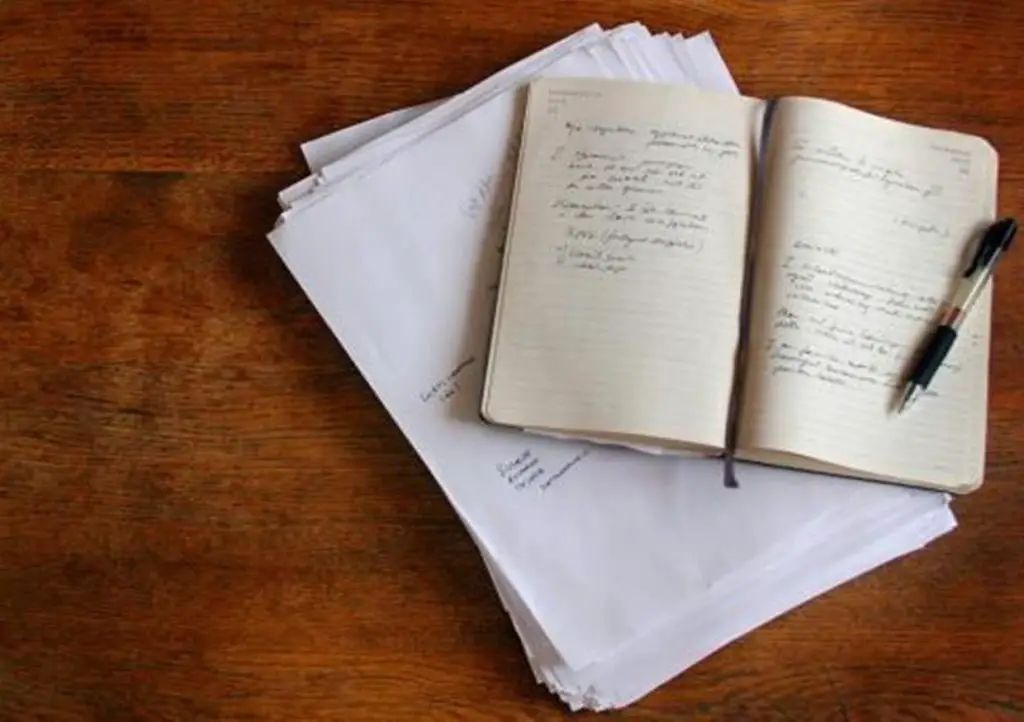Everyone has belted at the top of their lungs Taylor Swift’s “We are Never Getting Back Together” and “You Belong with Me.” Songs seem to say the right thing at the right time, causing listeners to laugh or cry when necessary. However, sometimes it can be hard to find a song that perfectly describes your emotions. What if you stopped looking for that one song and actually made your own?
Although writing a song sounds challenging, it’s actually a helpful way to express yourself by describing your thoughts and feelings in your own words. Rather than constantly searching through Spotify playlists to find the perfect, sad song to match your mood, you can sit down and create your own ballad. Not only does composing your own song encourage you to confront your feelings, it also develops important habits of perseverance, determination and hard work. So, here are the five stages and benefits of songwriting.
1. Committing to Actually Write a Song
It’s common for college students to want to write a song, similar to how hundreds of students have always dreamed of writing a novel or starting a band. Instead of actually accomplishing such goals, people leave their aspirations in the back of their minds. Eventually, that rock band fantasy becomes distant amidst the chaos of classes and social life. The first step to writing a song is making the conscious decision to do it now. While many may have to sit themselves down at a desk or on a bed to write, others can immediately begin writing with just a pen and paper, no matter their surroundings.
By choosing to write a song and following through, you are developing the beneficial habit of honoring your decisions. It’s typical for someone to set a goal for themselves, but the most important part is completing the task. Even if you don’t feel experienced enough to write a song, tackling the hard songwriting process displays endurance and determination.
2. Finding Musical and Lyrical Inspiration
One of the first questions people may ask about songwriting is, “What should I write about?” The answer is anything–it’s your song, so you get to decide what to write about. But, since writer’s block is easy to obtain when seeking inspiration for a song, this freedom can be overwhelming. The best ideas come from experiences, whether they are from the past or the present. You may find yourself walking outside searching for a topic to write about or a melody to pen words to. For others, inspiration might come about by playing random piano chord progressions or brainstorming small phrases to include in the lyrics.
Finding ideas can also be extremely frustrating, since they don’t usually come right away. Pushing yourself to seek new experiences in these trying times exhibits valuable persistence and patience. Although the inspiration process varies for everyone, it’s also important to reflect and be in serious thought once in a while. Critically thinking about your life and the world around you trains your brain, and you will start to more deeply evaluate your surroundings and experiences.
3. Writing the Song
This is the hardest part for most people, since it’s difficult to put abstract ideas and inspirations into concrete words. The best way to start writing a song is to just do it. Although the beginning phrases might not be the best, at least you are writing something. You can then look back at your words and critique yourself by either expanding upon or revising your lyrics. As you keep writing and rewriting, you will develop a strong, powerful voice.

It’s easy to think that what you write isn’t good, but the truth is that your words matter. Writing down lyrics allows you to put thoughts into words, which is important in confronting your personal feelings. Additionally, critiquing your work and developing important concepts on paper trains your brain in critical thinking skills. Having persistence while revising and considering the quality of your work will be useful in the classroom and the work field.
4. Letting Your Ideas Flow
Once a couple lines are written down, the rest of the song comes easily. One verse quickly flows into the pre-chorus, and soon after the chorus and bridge are naturally completed as well. Songwriting becomes more instinctive, as less thinking tends to be required with each additional phrase. Before you know it, your notebook will be full of words and you may not even remember the past ten minutes of writing.
There’s a powerful freedom in writing without thinking, and songwriting allows you to do that. By letting the ideas flow onto paper, you are embracing your instincts and thus embracing your own potential. As you write word after word in your tiny notebook, you are putting trust in yourself and your writing. Gaining confidence in your natural abilities is an essential characteristic to obtain, since instinctive work ethic and creativity will be forever valuable.
5. Singing Your Song
After countless words and scribbles, your song is finally done. Your pen can finally be put down, and you now have the chance to look at what you’ve created. A complete song sits right in front of you, allowing you to visually see your intellectual and emotional potential. Starting something is easy, but completing a task represents strong perseverance. The words in front of you embody your hard work and determination, since it isn’t easy to create a full song (especially if you aren’t musically gifted.) Although your perseverance is represented in the finished song, the most empowering part of writing a song is singing it out loud. Even if your voice is bad, saying your own words makes them true. In proclaiming your lyrics, you are acknowledging your feelings and empowering yourself.
Now, go write that Taylor Swift song. There’s a “Blank Space” just waiting for you to write on.

















[…] Read the full article from the Source… […]
[…] Read the full article from the Source… […]